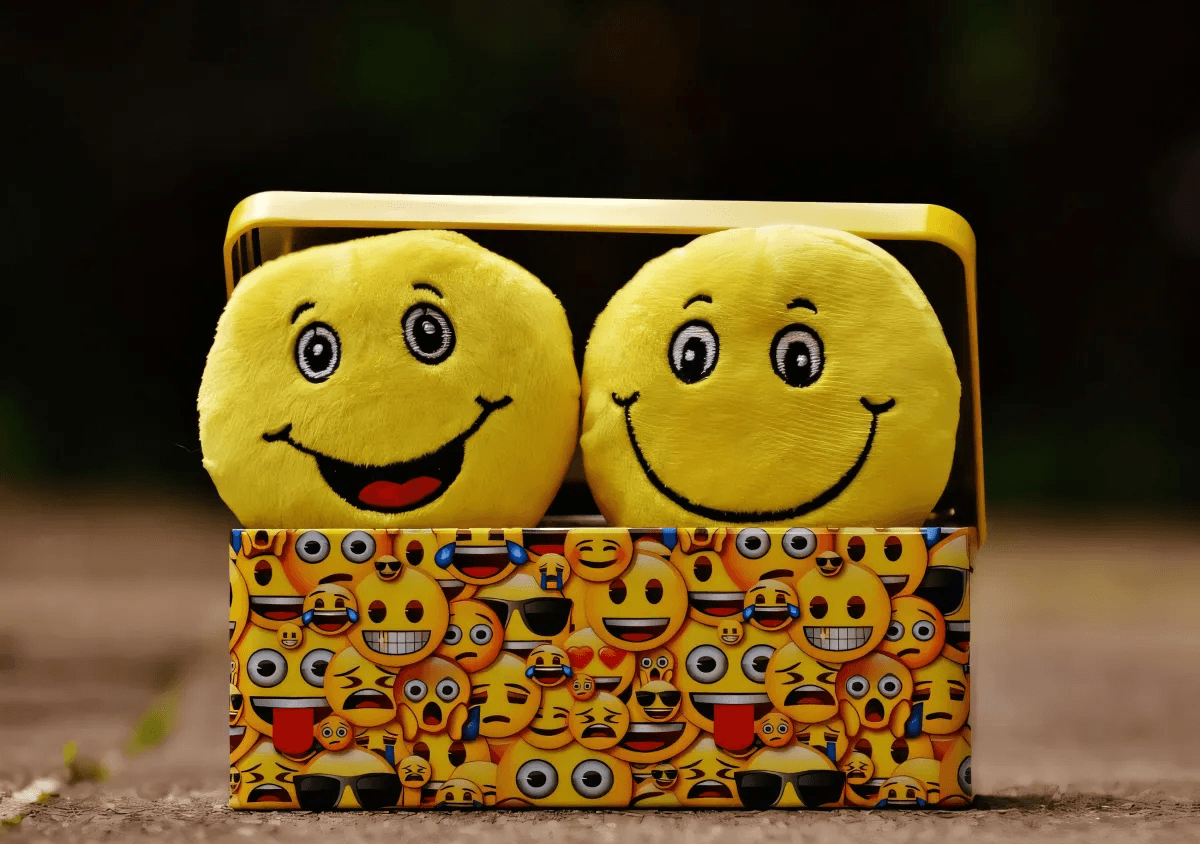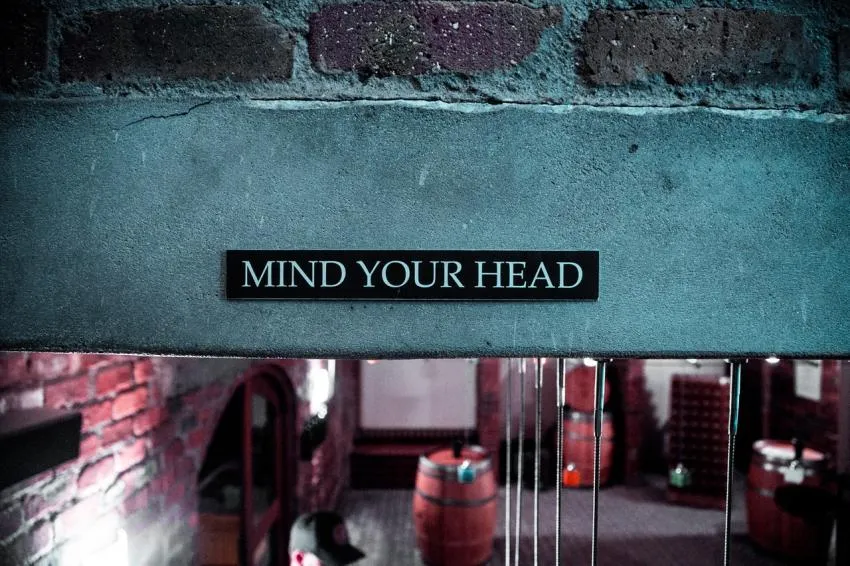E-motion: Energy In Motion, What Is It? How Can I Use It?
We all struggle with emotions, partly because we don't know how to cope with them and partly because society has made emotions seem bad. For years people have labeled showing emotions as weak.
I'm sure, like many of us, you have had your share of "Don't cry, nothing happened", "Stop crying or I'll give you something to cry about", "You're so sensitive, I can't even tell you anything" or something along those lines. That instead of pulling you up, despite the best of intentions, actually brings you down, especially those phrases that are passive-aggressive attacks.
Despite this, there have been some groups surfacing that advocate to change people's negative mindset about feelings and the way they deal with said emotions due to this negativity and subsequent suppression of feelings to avoid getting criticized, ridiculed, or humiliated.
This tug of war has kept us from knowing what emotions truly are and how we can manage them without pushing them down and burying them inside us. A recipe that, sooner or later leads us to a psychologist, therapist, or psychiatrist.
The good news is that we can learn how to deal with our emotions in positive ways not only to prevent bad things from happening but also to get to know ourselves better. That being said if you need the help of a professional, don't hesitate to go to one.
This article is meant as education only and it is not intended to be used for anything other than that. Consult your healthcare professional for help and counsel.
But first, what are emotions truly? Let's find out.

What are emotions?
According to psychology, emotions are states of feeling that are characterized by having physical and mental changes that subsequently prompt certain thought patterns and actions in response to the specific emotional state or the stimuli that triggered this state.
In short, emotions are feelings that make people have specific thoughts and actions or behaviors according to what they are feeling.
Depending on the emotion you are feeling your body creates hormones and chemical substances that give the brain and body signals. For example, when feeling happiness your body may create serotonin, dopamine, and endorphins. If you are stressed or angry your body can create cortisol, non-adrenaline, and adrenaline; so on and so forth.
Now, due to the, sometimes, violent changes that emotions like anger, sadness, and rage cause, people over the years have seen emotions as a nuisance, bothersome, and a thing that they would want to make disappear as soon as possible.
While it is understandable to want to try to temper or even control emotions, as they can blind people to what is around them if they let themselves be overcome by emotions, the right way to manage emotions is not by suppressing or shutting them down like previously thought and taught.
Emotions are energy
You see, recent studies have determined that emotions are actually energy, or in this case energy in motion.
Energy cannot be destroyed or created, it can only be transformed. And while energy can be bottled up, eventually, too much energy in a tight space would explode and be released forcefully.
When energy is released this suddenly it is bound to have catastrophic consequences. Think of a volcano that has been storing up energy and lava for thousands of years and suddenly erupts. Its eruption is powerful and destructive, isn't it?
Humans have similar responses to that of a volcano erupting, although, humans have the ability to either direct this energy outwards, creating violent interactions with others (anger) or direct the energy inwards also creating violent interactions with oneself (sadness, depression).
Sudden bursts of emotion aren't solely for negative emotions, it could also happen with positive emotions such as happiness, excitement, and joy. Though, normally these outbursts are milder than the outbursts caused by too much-suppressed energy.
For this reason, it is better to learn how to express and release this energy in motion healthily rather than suppress or ignore it. As much as you try you won't be able to get rid of your feelings because humans are emotional beings.
What you can do instead is find ways to release these emotions. Some things you can do to release these emotions (energies) are shadow work, exercise, journaling, talking to a friend, incorporate movement, stretch, etc.
Observing and sitting with your emotions is also a good way to release them. Sitting with yourself is a sure way to discovering the source of your emotional triggers and yourself as well.

We are more emotional than rational
Research on the brain has revealed that the emotional part of the brain has more connections to the rational part of the brain than the rational brain has to the emotional brain.
Despite popular belief or the desire for it to be so, humans are more emotional than rational, even when it comes to the brain.
Your heart thinks
Besides finding out that the brain is more emotional than rational, separate studies conducted in 1991 by Dr. Armour, found that the heart has its own nervous system.
Your heart can think on its own and separately from the brain. The heart was also found to be sending more messages to the brain than the brain to the heart.
Dr. Armour's study concluded that the heart may be the actual key moderator of pain and emotions and not the brain as previously thought.
It seems that the belief that the heart is the source of emotions, wisdom, and desire may be true after all.
Energy moves in spirals
Another study called Upward Spirals of Positive Emotions Counter Downward Spirals or Negativity: Insights from the Broaden-and-Build Theory and Affective Neuroscience on The Treatment of Emotion Dysfunctions and Deficits in Psychopathology, has described the energies of emotions as upwards or downward spirals.
The phrase 'upwards spirals' of energies is used to describe positive emotions, while the phrase 'downward spirals' is used to describe negative emotions.
In the study, it was found that positive emotions or upward spirals of energies, although transient, had a long-lasting effect. On the other hand, negative emotions were felt longer but only had a lasting effect if the person dwelled too long in the emotion.

Creating upwards spirals of energy (positive emotions) can help counter the downwards spirals of energy (negative emotions), especially since the upwards spirals move faster than the downwards spirals.
In fact, other research has shown that thinking about things that a person is grateful for and feeling that gratefulness in the midst of a panic attack can shorten the length of and even stop the panic attack altogether.
In psychology and spiritualism, there is also a technique used for some types of traumas, where the person is asked to think about the event and then asked to slowly change it into something positive over the span of a few days. The results have been that the person doing the exercise has felt better and has been able to move past the trauma.
But, what does this all mean?
First of all, let's remember that you can't run away from your feelings. Your brain is more emotional than rational and your heart has a mind of its own so you are basically more emotional than you have been previously led to believe.
Second and with the fact that you are more feeling that rationale if you suppress your feelings you run the risk of unconsciously acting out or bursting at any given moment.
But, now that we know that emotions are energy in motion we can use that to our advantage to manage our feelings.
We can become alchemists of emotional states by introducing a positive feeling into a negative one, changing a difficult memory to a positive one, even slowly changing a previously negative feeling on a certain topic or object into a positive one by learning more about it and changing perspectives.
We even have the power to lessen or even stop panic attacks with gratitude.
So, despite what you may think or what other people tell you emotions are important and can help you heal or help you fall, the decision is yours.
Opinions and Perspectives
Thinking about how this could improve workplace culture and communication
Never thought about emotions as something that could be transformed rather than controlled
The part about energy moving in spirals explains the snowball effect of emotions
Realizing how much damage emotional suppression has done to me over the years
Finally science is catching up with what many cultures have known for centuries
The idea of energy spirals explains why positivity can be so powerful in difficult times
Surprised by how much the heart communicates with the brain. Always thought it was one-way
The spiral concept explains why it's so hard to break out of negative thought patterns
Makes sense why suppressing emotions never worked for me. Can't destroy energy
Actually tried the gratitude technique during an anxiety attack. Surprisingly helpful
The brain-heart connection research is eye-opening. We really are whole-body beings
As a parent, this makes me rethink how I respond to my kids' emotional moments
Those childhood phrases about not crying really do stick with you. I still hear them sometimes
Been trying meditation to process emotions. This article helps explain why it works
The part about transforming memories fascinates me. Wonder if this could help with PTSD
Interesting how society has made us view emotions as weakness when they're actually just energy
This makes me feel better about being a sensitive person. Maybe I'm just more aware of energy
Never knew about Dr. Armour's study. Really challenges what we think about emotion processing
The research about the heart's nervous system explains why we feel emotions physically in our chest
Finding it hard to accept that we're more emotional than rational. My career depends on logic
This explains why journaling helps so much. It's a way to release that emotional energy constructively
I disagree with some points. Sometimes rational thinking needs to override emotional responses
The idea of being an alchemist of our emotional states is powerful. We have more control than we think
Totally agree about exercise. I always feel better after a good workout, especially when I'm angry
Must be why exercise helps so much with stress. It's literally moving that emotional energy
Sometimes I feel overwhelmed by my emotions. Good to know there are healthy ways to channel this energy
The concept of transforming negative memories into positive ones is intriguing. Has anyone tried this?
Just started therapy and this article helps explain why it's so important not to bottle things up
I relate to directing energy inward. Depression has been my way of coping with unexpressed emotions
The research on upward spirals gives me hope. Small positive changes can create bigger positive outcomes
Still struggling with the idea that being emotional isn't a weakness. Years of conditioning are hard to break
Shadow work has helped me tremendously with processing emotions. Glad to see it mentioned as a tool
The research about the heart-brain connection is fascinating. Makes me wonder what else we don't know about our bodies
My parents always told me to stop crying when I was young. Now I understand why that wasn't the best approach
Interesting to learn that gratitude can help with panic attacks. I'll have to try that next time
The volcano analogy really resonated with me. I've definitely had those emotional eruptions after bottling things up
This article makes me question everything I was taught about being stoic and not showing feelings
I've personally experienced that suppressing emotions only makes them worse later. Learned that the hard way
Anyone else find it fascinating that positive emotions move in upward spirals? Makes me want to focus more on cultivating joy
The part about the heart having its own nervous system blew my mind. I always thought the brain controlled everything
I never thought about emotions as actual energy before. This perspective really changes how I view my feelings
